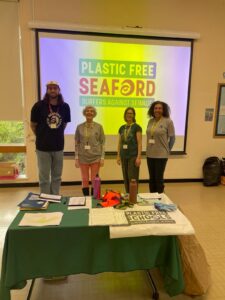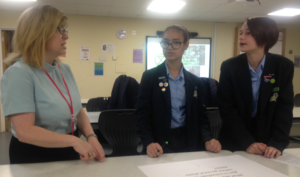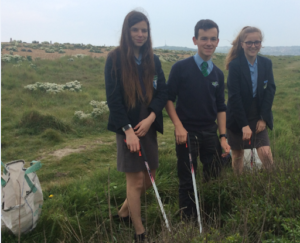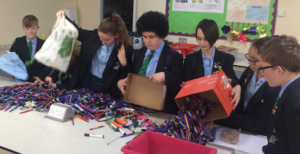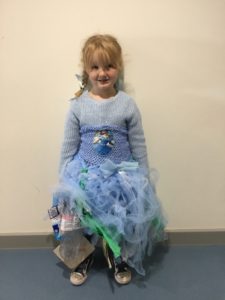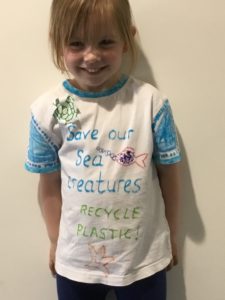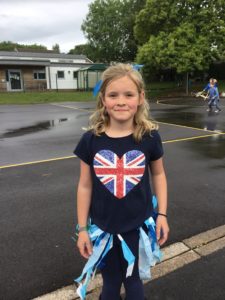The Plastic Free Schools programme involves each school completing a series of five objectives. Schools can sign up to the programme via the SAS website; they will then be sent a pack with everything they need to guide them through the process from forming their action group, conducting a litter audit and challenging government and industry, to making changes within their school to eradicate single-use plastics. As they complete each objective they submit their evidence to show us their progress and once they’ve completed everything we sign them off with Plastic Free Schools Status.
We feel it is a fun way of learning and motivating children to make informed changes which is essential in safeguarding the future of our planet. In May 2019 schools across Seaford held a Plastic Free Action week to raise awareness about plastic pollution, organised by Claire Sumners to bring the community of Seaford together to educate, motivate, and inspire others to address important environmental issues. We are thrilled with the effort put in by all involved and meridian news filmed some of the activities taking place at Seaford Head School.
Plastic Free Action week at Seaford Head School
Hundreds of Seaford students have been involved in a range of activities this week to draw attention to and solve the problem of plastic waste in the environment. Assistant Head teacher at Seaford Head School, Mr Rob Handy, said “We aim to reduce our plastic use in the first place from the plastic cutlery and bottles to the pens and rulers that we sell.” He has delivered assemblies to introduce a new recycling scheme that will see the school increase the recycling of plastic waste. Students from across the school have taken part in litter picks, beach cleans and making art from plastic waste. In English lessons they have written poetry and persuasive letters and in science and maths lessons they have analysed data to do with plastic pollution and studied the bioaccumulation of toxins from plastic pollution in the food chain.
Students also had the opportunity to express their environmental concerns to MP Maria Caulfield who visited the school last week. One year eight student said: “You hear about these stories in the news about Sea Turtles and birds dying because they’ve ingested so much plastic and we all have to do our bit to make things better”. Other students pressed Maria Caulfield on why environmental issues did not feature as a priority in the 2017 Conservative manifesto and why England has not signed up to a bottle deposit scheme like they have in Scotland. Students have been invited to write to their MP so that their views can be represented.
Annecy Catholic Primary School
